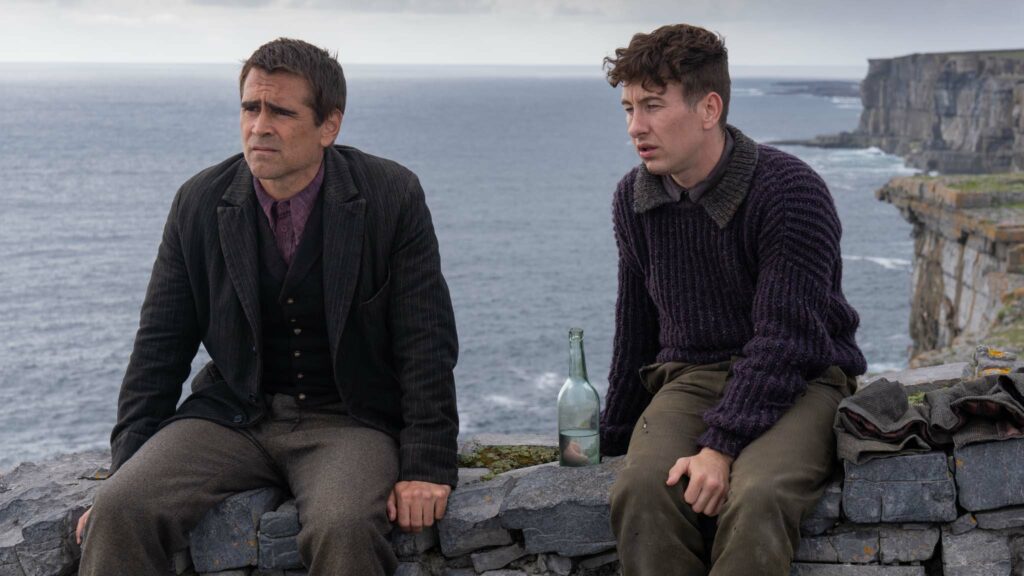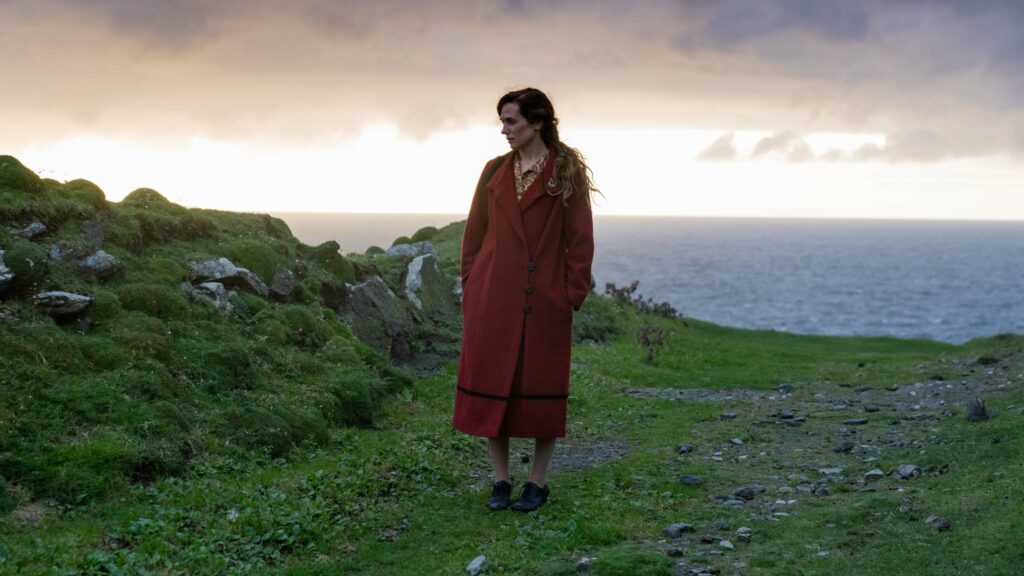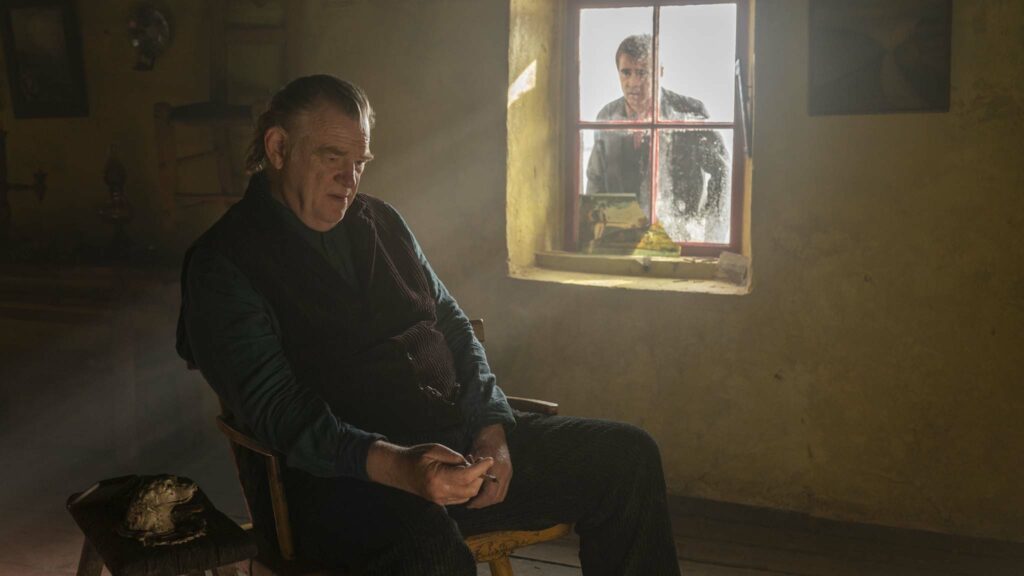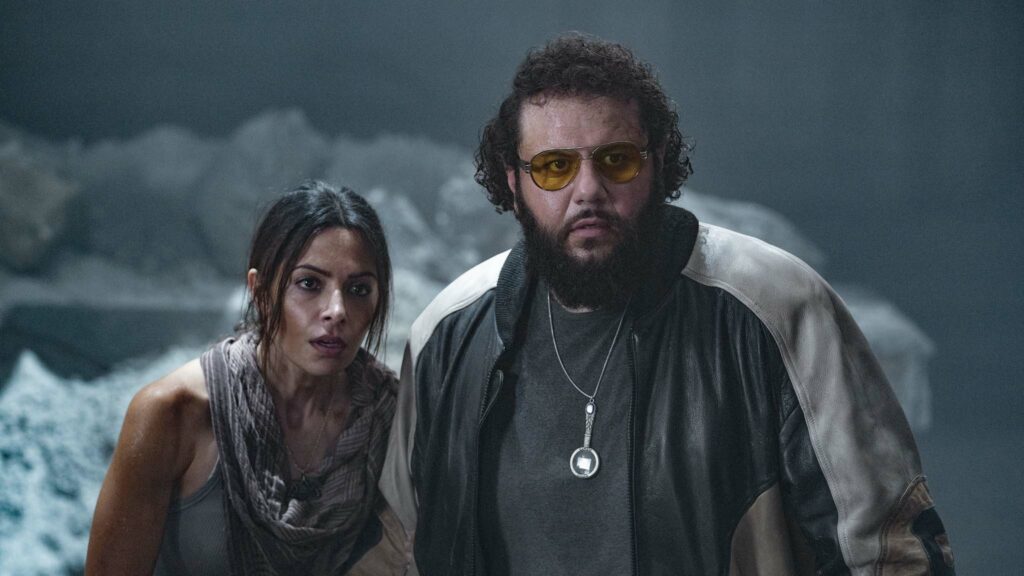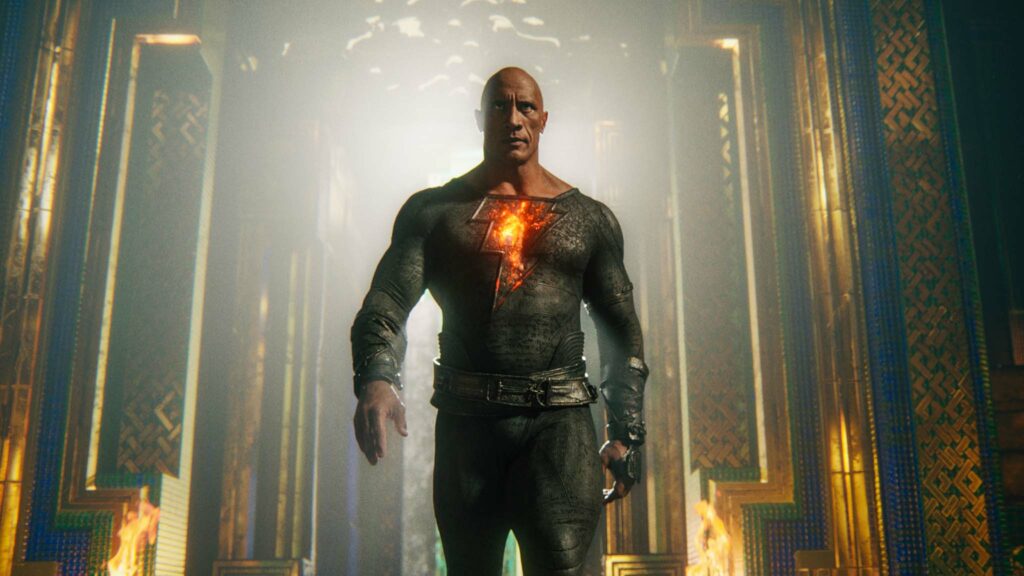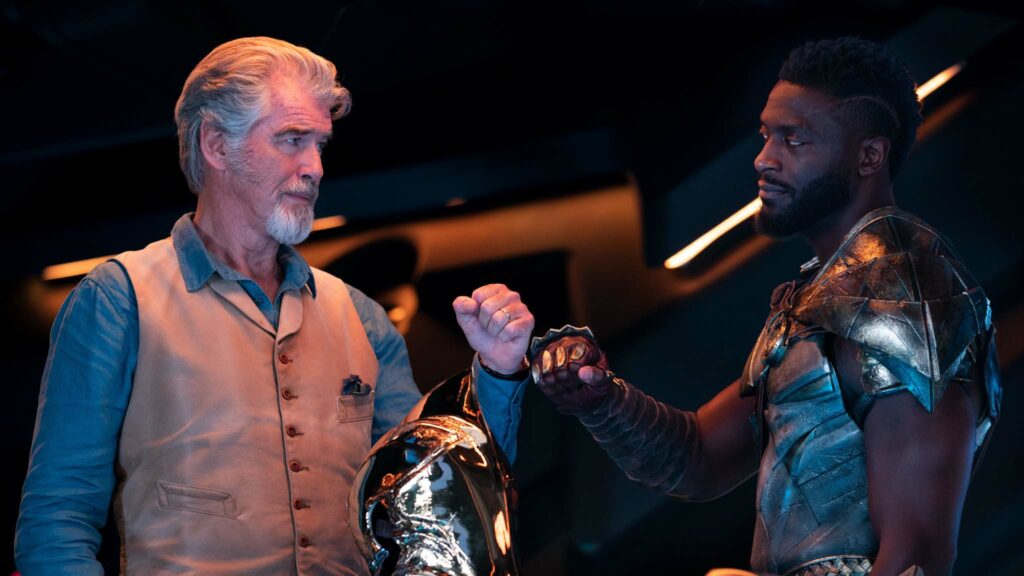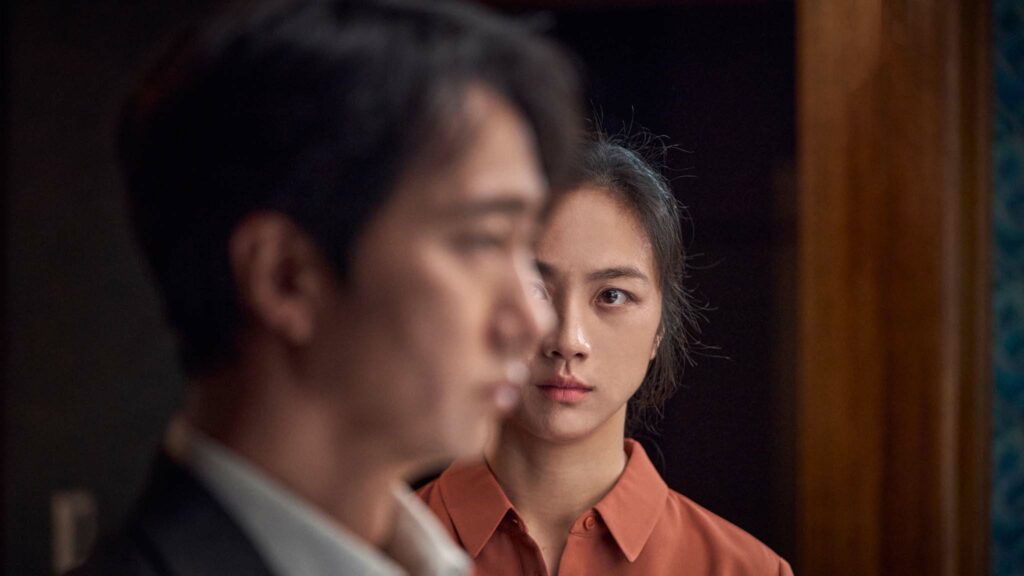Comedy
The Banshees On Inisherin (15)
Review: Writer-director Martin McDonagh trades three billboards outside Ebbing, Missouri for a fractured friendship off the coast of 1920s Ireland in a deliciously barbed comedy with the potential to draw blood at next year’s Academy Awards. Laced with humour as black as a pint of freshly poured Guinness, The Banshees Of Inisherin uses a simple declaration of discontent – “I just don’t like ya no more” – as the springboard for a close-quarters study of fraying fraternal bonds and bruised male pride. McDonagh previously cast Brendan Gleeson and Colin Farrell as a veteran hit man and trigger-happy protege in his foul-mouthed 2008 crime caper In Bruges.
The two actors explore similar power dynamics here, armed with verbal grenades that cause maximum damage to their fatefully entwined characters in a close-knit island community where everyone knows a neighbour’s unfortunate business. Farrell delivers a nuanced, career-best performance as an uncomplicated man of the earth, who is rudely jolted out of a rut by an unexpected parting of ways. He trades masterfully in a different kind of naivete to Barry Keoghan’s show-stopping village eejit while Gleeson makes every weary sigh land with the force of a below-the-belt punch.
In spring 1923, tranquillity persists on an island off the coast of Ireland as the final deafening roar of civil war reverberates across the mainland. Dairy farmer Padraic Suilleabhain (Farrell) and sister Siobhan (Kerry Condon) live peacefully and unremarkably in the isolated community with their livestock including a cherished donkey called Jenny, surrounded by the crashing waves of the Atlantic Ocean. Every afternoon, Padraic shares a drink down the local pub with fiddle player Colm Doherty (Gleeson) and exchanges small talk with landlord Jonjo (Pat Shortt).
Out of the blue, Colm tells Padraic that he no longer wishes to be friends or trade pleasantries: “I just don’t have a place for dullness in me life anymore.” This sudden rejection sends Padraic into an emotional tailspin and he seeks guidance from the local priest. When Padraic awkwardly engineers a reconciliation, Colm pledges to cut off one of his fingers each time the dairy farmer breaks the silence between them. Padraic’s response has catastrophic consequences for the islanders including police officer Peadar Kearney (Gary Lydon) and his sweetly simple-minded son Dominic (Keoghan).
The Banshees Of Inisherin lines up pints of melodic melancholy, exasperation, dismemberment and full frontal male nudity and we enthusiastically drink the bar dry over the course of two engrossing hours. Violence is used sparingly and to devastating effect. No real animals were harmed but creatures on two and four legs suffer most grievously on screen, sometimes by their own trembling yet determined hands. Colm may be tired of Padraic’s inane chitter-chatter but I have all the time in the world for McDonagh’s expertly created picture.
Find The Banshees On Inisherin in the cinemas
Action
Black Adam (12A)
Review: If you can’t beat ’em, join ’em. With the notable exception of Christopher Nolan’s brooding Dark Knight trilogy, films torn from the pages of DC Comics have struggled to match the critical and commercial success lavished upon interlinked phases of the Marvel Cinematic Universe. It’s perhaps inevitable that action-packed adventure Black Adam, a spin-off from the 2019 film Shazam!, should mimic the knockabout tone of the MCU replete with a wisecracking superhero team that comprises dead ringers for Falcon, Dr Strange, Storm and Ant-Man from the crowded ranks of the Avengers and X-Men.
Imitation doesn’t fatally wound director Jaume Collet-Serra’s brawny blockbuster. This gung-ho gallivant through five thousand years of Middle Eastern uprising strikes a pleasing balance between outlandish slow-motion action sequences, familial angst and irreverence. A teenage boy dispenses pithy wisdom to Dwayne Johnson’s clueless deity about superhero etiquette – catchphrase first then kill the bad guys – and eagerly appraises the leading man’s gym-toned physique: “Batman, Superman, Aquaman… you’re more stacked than all of them!” Bigger, maybe, but not better. The script penned by Adam Sztykiel, Rory Haines and Sohrab Noshirvani teases gritty emotion (“The world doesn’t always need a white knight. Sometimes it needs something darker…”) but as the film’s 12A certificate indicates, violence is largely implied and blood detail is almost non-existent, even when gun-toting henchmen lose a limb.
In 2600 BC, the power-hungry king of Kahndaq forges a crown from the rare metal eternium to summon and control a skeletal army from the fiery underworld. Slave Teth Adam (Johnson) dares to oppose the megalomaniacal monarch and a council of wizards rewards the brave champion with immense power. Alas, Kahndaq’s protector allows grief and vengeance to dictate his actions and the wizards entomb Teth Adam within the Rock of Eternity to protect mankind from his wrath.
Five millennia later, freedom fighter Adrianna Tomaz (Sarah Shahi), her brother Karim (Mohammed Amer) and young son Amon (Bodhi Sabongui) unwittingly release the prisoner with a single word: “Shazam!” Teth Adam emerges into a city he barely recognises, which has been under military occupation by a criminal organisation called Intergang for 27 years. The resurrected champion represents a potent threat to political stability and world order so the Justice Society comprising Hawkman (Aldis Hodge), Doctor Fate (Pierce Brosnan), Atom Smasher (Noah Centineo) and Cyclone (Quintessa Swindell) are swiftly despatched to negotiate Teth Adam’s peaceful surrender. “I’m not peaceful,” he snarls.
Black Adam dials back Johnson’s natural charisma and smile to a persistent glower as he vaporises anyone who threatens the sanctity of Kahndaq and its people. Pacing is initially sluggish but Hodge and Brosnan provide complementary emotional heartbeats amidst the wanton destruction. Centineo and Swindell are poorly served and a so-called supervillain is crushingly forgettable; a stepping stone to the tantalising showdown suggested in the obligatory end credits sequence.
Find Black Adam in the cinemas
Thriller
Decision To Leave (15)
Review: Choreographed on-screen violence has become a signature of award-winning South Korean filmmaker Park Chan-wook, most notably for international audiences in his razor-sharp trilogy comprising Sympathy For Mr Vengeance, Oldboy and Lady Vengeance. There are flashes of brutality in this slow-burning police thriller, including a sickening tumble from the top of a mountain, but greater damage is inflicted on characters’ psyches as the writer-director puts his distinctive spin on an erotically charged game of cat and mouse a la Basic Instinct. Co-written by Park and Jeong Seo-kyeong, Decision To Leave doesn’t overplay its winning hand in the opening hour, stoking sexual tension between lead actors Park Hae-il and Tang Wei on opposite sides of a murder investigation.
Heat between the characters is palpable and the film relishes lingering glances between hunter and prey (the distinction between the two is intentionally blurred) as they circle each other. The script toys with noir genre tropes and lull us into a false sense of familiarity in a slow-paced first hour before plot machinations kick in with force, steeped in tragedy and regret. The blitzkrieg we are silently expecting never manifests and die-hard Park fans may feel short-changed by the scarcity of mutilated bodies on a mortuary slab.
Insomniac and workaholic Hae-joon (Hae-il) is the youngest police detective in Busan, who prowls the city’s streets with hot-tempered colleague Soo-wan (Go Kyung-pyo). Hae-joon’s health-conscious wife Jung-an (Lee Jung-hyun) lives in quieter surroundings in Ipo, where she works in the nuclear power plant. In the few hours she sees Hae-joon, Jung-an complains bitterly that they have a “weekend marriage” because he devotes more time during the week to solving grisly murders than their passionless relationship. Proving her point, he fixates on the case of a rock climber (Yoo Seung-mok), who supposedly tumbled to his death after a leisurely Monday morning ascent.
Blood spatter indicates the victim hit the rock face multiple times as he fell and Hae-joon becomes convinced that he is investigating foul play. The dead man’s younger wife Seo-rae (Wei), who works as a carer for the elderly, is interviewed and the usually implacable Hae-joon develops an obsession with his prime suspect. “From the start, I knew we were of the same breed,” he quietly confides to Seo-rae, who fuels the flames of Hae-joon’s infatuation, jeopardising the integrity of the case and his marriage.
Decision To Leave drains patience with its protracted murder mystery set-up but the rewards are abundant as Park steadily turns the thumbscrews on his protagonists. Hae-il and Wei are a powerhouse pairing, the latter embodying a heroine who slinks in a morally grey area between victim and femme fatale. Park’s stylistic flourishes energise the police procedural elements and keep us guessing a haphazard route to the satisfying outcome.
Find Decision To Leave in the cinemas


